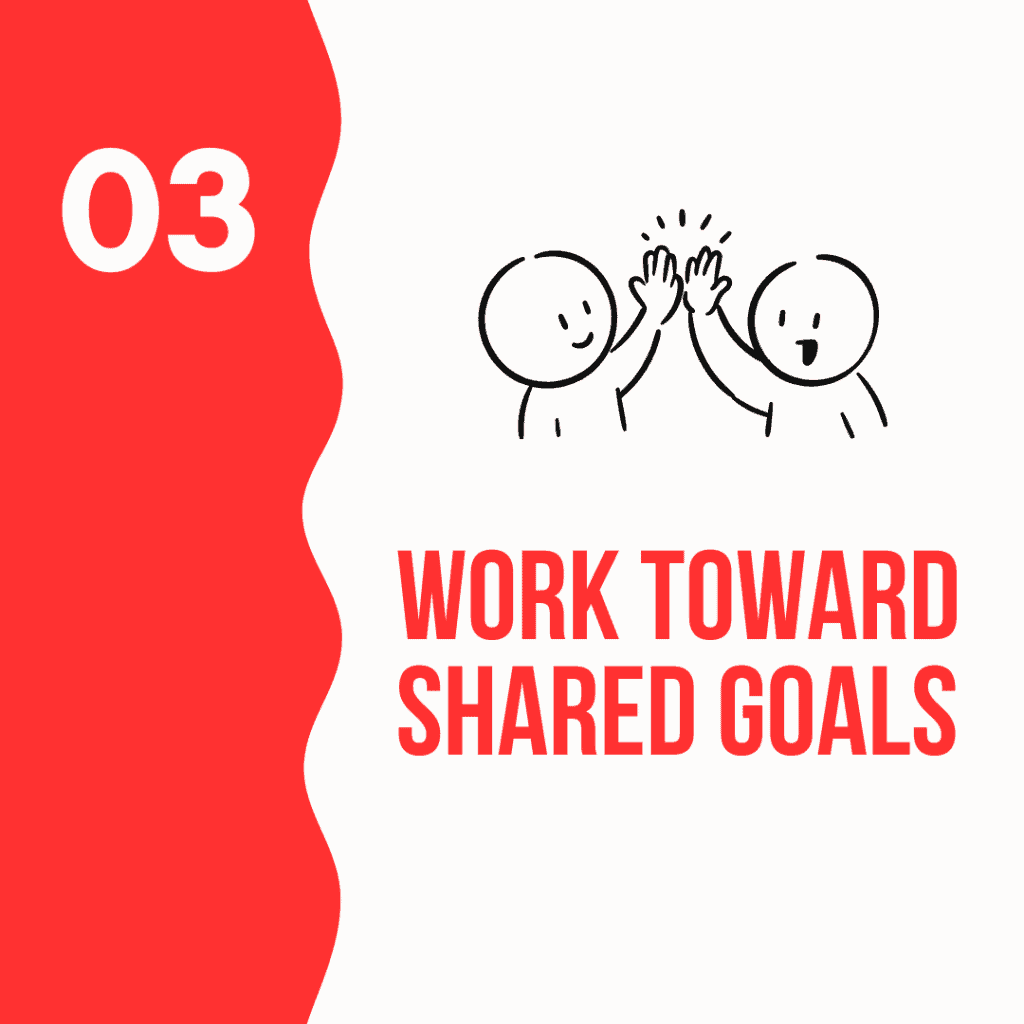Let’s face it—love and money are pretty much inseparable in a relationship. How we spend, save, and share says a lot about how we show care and are aligned with goals. For women in relationships, especially when you add work and kids to the mix, it can feel like a juggling act to manage finances while keeping relationships strong and aligned. But guess what? Aligning your money mindset or approach with your love language can make a world of difference.
Understanding how love languages and money go hand-in-hand can help you manage your finances easier, communicate better, and stay patient as you work toward your goals together. Here’s how to turn financial decisions into acts of love.
What Are Love Languages, and How Do They Relate to Money?

If you’re familiar with Dr. Gary Chapman’s five love languages—words of affirmation, acts of service, receiving gifts, quality time, and physical touch—you know they’re all about how we give and receive love. While not all of them involve money, they do require intention. And that’s where financial planning comes in. Let’s break it down:
- Words of Affirmation: Loving words are free but can be paired with thoughtful gestures like a handwritten note or a sweet text. A simple card on a special day can go a long way without costing much. If this is your partner’s love language you likely need very little extra budget money to make them swoon.
- Acts of Service: These are all about practical support. Cooking dinner, running errands, or tackling a household chore shows love and effort—no big spending required. Once again very little cost monetarily, but it will cost your time, so do budget that accordingly. Consider a daily/weekly spot on your calendar to show some love.
- Receiving Gifts: This doesn’t mean splurging on extravagant items. A meaningful, budget-friendly gift—like a favorite book or a homemade treat—can be just as heartfelt. Perhaps you want to have a mix of price ranges here; I recommend having a ‘gifts’ line item for all types of gifts; birthdays/holidays/babies/weddings – but an extra line item if this is your partner’s love language. Let’s say you put $25-$50 monthly there. You can ‘roll over’ those funds when you don’t need as much; i.e. you pick up a book by his favorite author for $15 and carry over the leftovers to add to the next month – resulting in a higher cost gift.
- Quality Time: Time together doesn’t have to cost a fortune. A walk in the park, a cozy movie night, or a simple picnic can create meaningful memories, and you can also amp it up with an overnight date night. You’ve got options!
- Physical Touch: From holding hands to a cuddle session or a relaxing massage, this love language is all about connection—no price tag necessary.
Shifting the Money Mindset: Financial Sacrifices as Acts of Love
Whether you’re a natural saver or a natural spender, making sacrifices for a greater goal or purpose can absolutely be an act of love. However, we don’t often talk about this – and therefore it does ‘feel’ as loving or scratch the itch for your partner.
So, let’s talk about it.
- Discussing why the priority to put money toward your goal this year will be beneficial for yourselves, your family needs to be on the table. Talk with your partner about what you’re working toward together. Is it a dream vacation, a down payment on a house, or paying off debt? Knowing your “why” makes sacrifices feel worth it.
- Mourning what you’ll miss should also be brought to the conversation. It’s okay to have an ‘on pause pity party’ for a minute. Acknowledge the sacrifice and the willingness to get to your goal. Call out what you’ll miss most about ________ and find an alternative that will help soften the blow a bit. And when you’re in the midst of your journey – go back to your why. You can even say it out loud to your partner; I love you so much – really missing my ______ right now. The openness helps to take some power and control away from the feeling of loss.
- Remind yourself that saying no now, means you get to say YES later. Your future self will really be feeling the love.
- If you have kids at home – they need to see you say no. They need to see you sacrifice, so that they have an example to look back on when they have a choice to stay in the present or make temporary sacrifices for long term gain.
Practical Budgeting Tips for Partners
Strong relationships need a solid financial foundation. Here’s how to create a budget that works for both your hearts and wallets:

Share your financial situation—income, expenses, and goals. Honesty builds trust. Lay it all out there, knowing that there may be ‘feelings’ around this information. Choose to make adjustments as a couple.

Dedicate a small part of your budget for thoughtful gestures like date nights or small gifts.

Team up to save for milestones like a vacation, paying off debt, or a special celebration.

Have a little personal spending money for things you enjoy individually. It’s important to maintain independence.

Life happens, so revisit your budget together to make sure it still fits your needs. I like to do an annual budget review looking forward to the year – but you also need to make sure your expenses through the weeks/months match your plan, and make edits as needed.
Tackling Common Struggles
Money and love don’t always mix easily. In fact, it’s still one of the top reasons why couples divorce. Here are a few tips for navigating a few common issues I see.
- Communication Problems: If you’re not on the same page, take a love language quiz together and use financial planning tools to spark meaningful conversations. Get real with one another about your needs and desires and honest with yourself as well.
- Tight Budgets: Stress is high when money is tight, and working together – that old ‘two heads are better than one’ saying rings true. Knowing you’re in it together, and being willing to make temporary sacrifices really does help.
Don’t just take my word for it. I called in the advice of an expert. Hear a few favorite tips from Ashlyn Lavin, M.A., MFTC including the following:
Assertive Communication and Active Listening Builds Safety and Connection
Assertive communication and active listening are foundational skills for building understanding, safety and connection in your relationship, especially when navigating sensitive topics like money. Assertive communication includes expressing your thoughts, feelings and needs clearly and respectfully by using “I” statements. For example, saying, “I feel anxious when we don’t discuss our budget. Making sure that we are on the same page helps me to feel secure about our finances” conveys clarity of needs without blaming your partner. Using I statements minimizes criticism and defensiveness and fosters an environment where both partners can share openly. By focusing on personal experiences and needs, even through the lens of the five love languages, you are better equipped to approach financial discussions as a team rather than feel pinned against one another.
Active listening complements assertive communication by ensuring that each partner feels heard and understood. Active listening means that we listen with the intent to understand, remain curious, reflect back what we heard from our partner and validate their feelings. For example, repeating, “It sounds like you are feeling overwhelmed about saving for our future,” shows empathy, understanding, and a willingness to engage. This practice supports emotional safety, allowing you to explore deeper concerns, clarify values, and work collaboratively toward shared financial goals.
Together, assertive communication and active listening skills promote trust and foster connection, transforming potentially divisive conversations about money into meaningful opportunities for growth and mutual alignment.
You can connect with Ashlyn at [email protected] or https://www.alvtherapy.com
Let’s Take Action: Align Love Languages and Financial Priorities
Ready to make your relationship stronger? Start by talking with your partner about your love languages and financial priorities. Think about how your love language and tendencies line up with your shared goals and plan ways to show love that feel authentic and intentional.
At the end of the day, love isn’t about how much you spend. It’s about the thought, care, and connection behind your actions. By syncing your finances with your love languages, you’ll build a relationship that’s not just strong—it’s thriving.
Want more ‘love’ related money info? Check out these blog posts.
- The None-Romantic Reality of Financial Abuse and Financial Infidelity
- Young Newlyweds Payoff Debt of $35K
- Does Your Spending Reflect Your Values?
- Relationship with Money: Complicated
- Spouse Onboard with Money Management
Thank you for joining me on my journey to influence.


Sign up below to get a weekly email with tips, tricks, and truth about intentionality with your time, talent, and money.
